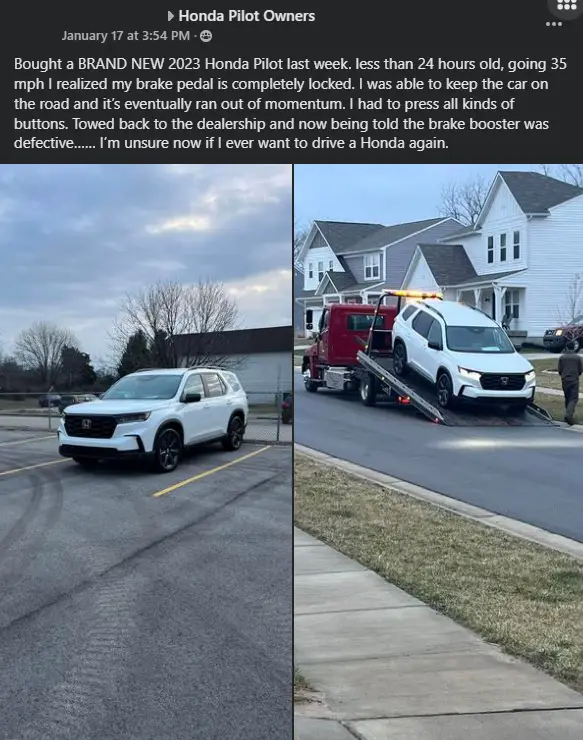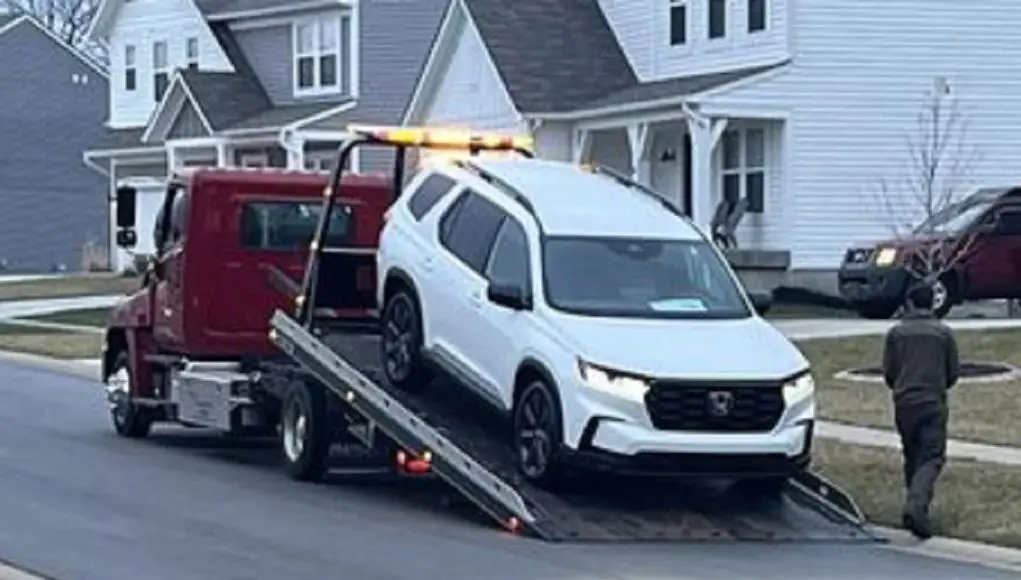The dealership told her it was a defective brake booster.
Honda just took the covers off their all new Pilot for 2023 back in November, ’22 with owners taking delivery later in December. You’d think something as fundamental as the Pilot’s brakes would not be an issue, but that was far from the case for one new Pilot owner.
A member of the Honda Pilot Owners Facebook group shared how, less than 24 hours after taking delivery of her brand new Pilot she suffered what she called a case of locked brakes.
Here’s a screenshot of her post below.

“Less than 24 hours old, going 35 MPH, I realized my brake pedal is completely locked,” she captioned her post.
“I was able to keep the car (Pilot) on the road, and it eventually ran out of momentum. I had to press all kinds of buttons. Towed back to the dealership, and now I’m being told the brake booster was defective.”
When asked to clarify what she meant by “brake pedal completely locked” she answered, “Wouldn’t go down at all. I couldn’t get it to move.”
All you need to know about a brake booster is that it’s a component in your car’s engine that, using the engine’s own intake to create a vacuum, multiplies your braking power, making stopping virtually effortless.
It’s how you’re able to barely push down on your brakes yet bring your 6,000 pound SUV to a stop.
A failed brake booster means all the energy to depress your car’s brake fluid, forcing said fluid to your car’s calipers (and/or drums,) depressing the brake pads and stopping your car, must all come from you (read, all your leg power.)
To an average man, a failed brake booster might feel like an extra hard push to engage the brakes, but for some people not blessed with the best leg strength, stopping your car without the power of vacuum assist might feel darned impossible, no matter how hard you push.
According to Car Complaints, the Pilot’s been a relatively trouble-free family SUV, the most spike in complaints happening in 2016 (jerky transmission issues.)
She concluded her caption with, “I’m unsure now if I ever want to drive a Honda again.”
To be fair, Honda probably does not make their brake boosters in-house instead, like most car companies, outsourcing engine-related components to another company.
Regardless, of all the parts to fail on a new vehicle, keeping in mind that it’s reasonable to expect some defective parts on a new, redesigned model, the brakes, frankly, shouldn’t be one of them.
Can you blame her, after suffering defective brakes, if she swears off the brand?
As of this blog post, there are no reports that I’m aware of from other new Pilot owners of a similar defect.
Will this, unfortunately, be the first of many failed brake boosters, leading to a recall?
Or, what I hope is the case, is this just a brake booster supplier anomaly?
Source: Honda Pilot Owners | Bought a BRAND NEW 2023 Honda Pilot last week | Facebook




